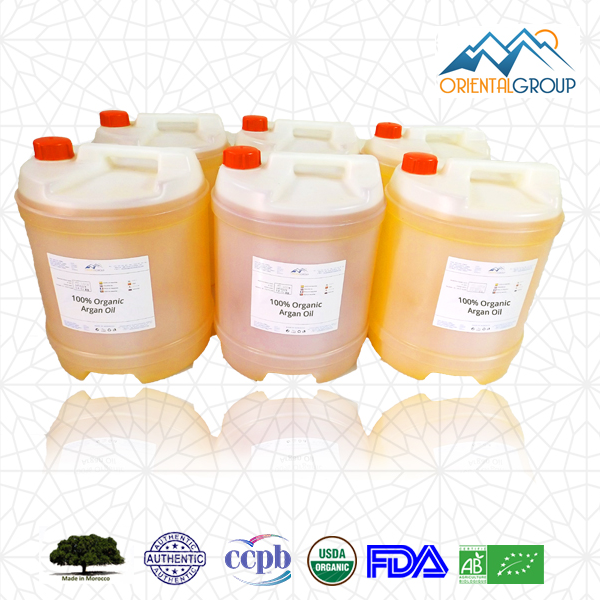Fair-trade practices play a crucial role in transforming argan oil production into an ethical, sustainable, and high-quality industry. In this article, we explore the product characteristics, advantages, and differences compared to non-fair-trade methods. We also examine pricing, benefits, quality, originality, user reviews, and my personal opinion. Read on to discover how fair-trade initiatives are shaping the future of argan oil.
Introduction: Fair-Trade and Its Impact on Argan Oil

To start, fair-trade practices ensure that local Moroccan producers receive fair compensation and work under safe conditions. Moreover, these practices contribute to sustainable agriculture and protect the environment. Consequently, fair-trade not only benefits the communities involved but also guarantees that the final argan oil product is ethically sourced and of superior quality.
Product Characteristics: Authentic and Ethical Argan Oil
Pure and Natural Composition
- 100% Natural & Organic: Argan oil is extracted solely from argan kernels using traditional cold-press methods, ensuring a pure product free from synthetic additives.
- Nutrient-Rich Formula: The oil is renowned for its high levels of vitamin E, omega-6, and omega-9 fatty acids, which support skin, hair, and overall health.
- Certified Quality: Many fair-trade argan oil brands carry certifications such as USDA Organic and Fair Trade, which validate their commitment to quality and ethical practices.
Ethical Sourcing and Sustainability
- Direct Cooperation: Producers work directly with Moroccan cooperatives, ensuring fair wages and safe working conditions.
- Eco-Friendly Practices: Sustainable harvesting methods protect the natural argan forests and contribute to environmental conservation.
- Cultural Preservation: Traditional extraction methods honor centuries-old practices and cultural heritage, making each bottle a symbol of authenticity.
Advantages of Fair-Trade in Argan Oil Production
Social and Economic Benefits
- Empowering Local Communities: Fair-trade practices ensure that local farmers earn a fair income, which in turn supports community development and education.
- Ethical Consumerism: Customers increasingly seek products that are ethically produced; fair-trade argan oil meets this demand and builds trust.
- Sustainable Growth: The fair-trade model promotes long-term sustainability, ensuring that both the environment and local economies benefit.
Enhanced Product Quality
- Rigorous Quality Control: Fair-trade suppliers invest in strict quality control measures to maintain high standards, which results in premium argan oil.
- Consistency: Ethical sourcing guarantees a steady supply of high-quality oil, which is essential for building a reliable brand.
- Transparency: Consumers receive detailed information about sourcing, production practices, and certifications, which enhances overall product value.
Differences Compared to Non-Fair-Trade Products
Ethical vs. Conventional Production
- Superior Nutrient Retention: Unlike many mass-produced argan oils, fair-trade products retain their full nutrient profile due to traditional cold-press extraction methods.
- Sustainable Practices: Fair-trade production emphasizes sustainable and environmentally friendly methods, which contrasts sharply with conventional industrial practices.
- Community Support: In contrast to products lacking fair-trade certification, fair-trade argan oil directly benefits local producers, ensuring ethical labor practices and community development.
Pricing Overview: Value for Ethical Investment
- Mid-Range Pricing: Fair-trade argan oil typically falls within the mid-range price bracket, reflecting its premium quality and ethical production.
- Bulk Discounts: Purchasing in bulk often leads to significant savings, making it an attractive option for both individual consumers and businesses.
- Long-Term Investment: Although the price may be slightly higher, the ethical, sustainable, and quality benefits justify the investment for conscientious buyers.
Benefits for Consumers and Brands
For Consumers
- Health and Wellness: Regular use of nutrient-rich argan oil enhances skin hydration, improves hair texture, and supports overall health.
- Ethical Assurance: Buying fair-trade argan oil gives consumers peace of mind, knowing they are supporting sustainable practices and local communities.
- Versatility: The oil’s ability to be used in skincare, haircare, and even culinary applications provides comprehensive benefits.
For Brands
- Market Differentiation: Utilizing fair-trade argan oil allows brands to stand out by aligning with ethical and sustainable values.
- Enhanced Reputation: Ethical sourcing and high product quality build trust, leading to stronger customer loyalty.
- Growth Opportunities: As consumer demand for ethical products grows, brands that use fair-trade ingredients can tap into expanding markets and improve profitability.
Quality and Originality: The Fair-Trade Advantage
Superior Quality Standards
- Strict Testing and Certification: Every batch of fair-trade argan oil undergoes rigorous testing and carries certifications that guarantee its purity and quality.
- Traditional Extraction: By preserving the cold-press method, fair-trade argan oil maintains its natural properties and nutritional benefits.
- Consistency: Ethical production practices ensure a consistent supply of high-quality oil, which is essential for building a reliable product line.
Unique Cultural Heritage
- Moroccan Roots: The rich history and traditional practices associated with argan oil production add an authentic cultural appeal.
- Innovative Integration: Modern fair-trade practices combine with time-honored methods to deliver a product that is both innovative and true to its origins.
- Distinct Market Position: The blend of ethical, sustainable, and high-quality practices positions fair-trade argan oil as a unique and desirable product in the global market.
User Reviews

What Industry Experts and Consumers Are Saying
- Alice M., Beauty Brand Owner:
“Our switch to fair-trade argan oil has elevated our product line. Customers love knowing our ingredients support sustainable practices and benefit local communities.” - James T., Sustainable Product Advocate:
“Fair-trade argan oil stands out due to its superior quality and ethical sourcing. It not only nourishes the skin but also supports a great cause.” - Sophia L., Organic Product Retailer:
“The transparency and commitment to sustainability in our fair-trade argan oil have significantly boosted consumer trust and brand loyalty.”
Personal Opinion
In my opinion, The Role of Fair-Trade in Argan Oil Production offers a compelling glimpse into how ethical practices can drive industry success. I appreciate the balance between preserving traditional methods and embracing modern quality controls. Moreover, the social and economic benefits of fair-trade practices not only improve product quality but also build lasting consumer trust. I firmly believe that investing in fair-trade argan oil represents a smart choice for both consumers and businesses looking to make a positive impact on the world.
Conclusion: Embrace the Future with Fair-Trade Argan Oil
To conclude, fair-trade practices in argan oil production bring numerous benefits that extend far beyond the product itself. The ethical sourcing, sustainable production methods, and rigorous quality controls create a superior product that supports both environmental conservation and local communities. In summary, choosing fair-trade argan oil allows consumers and brands to enjoy exceptional quality while making a positive social and environmental impact.
Invest in fair-trade argan oil today and join the movement towards a more ethical, sustainable, and high-quality future in natural products.




